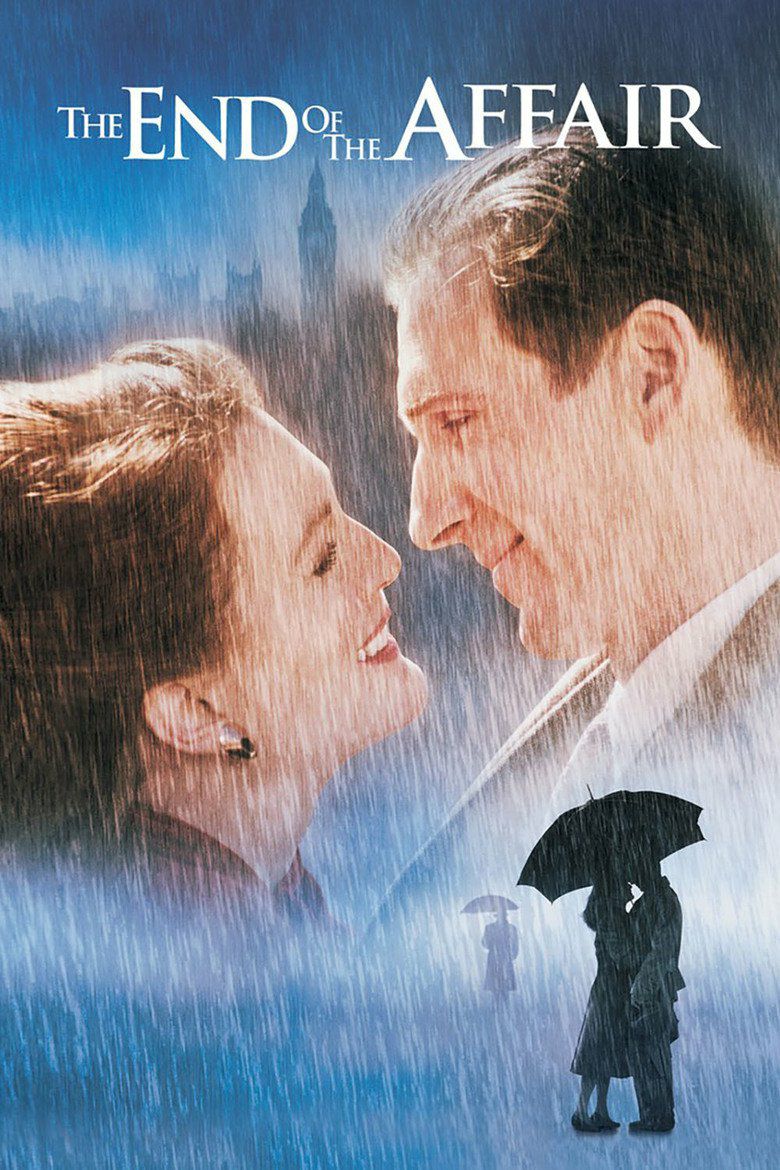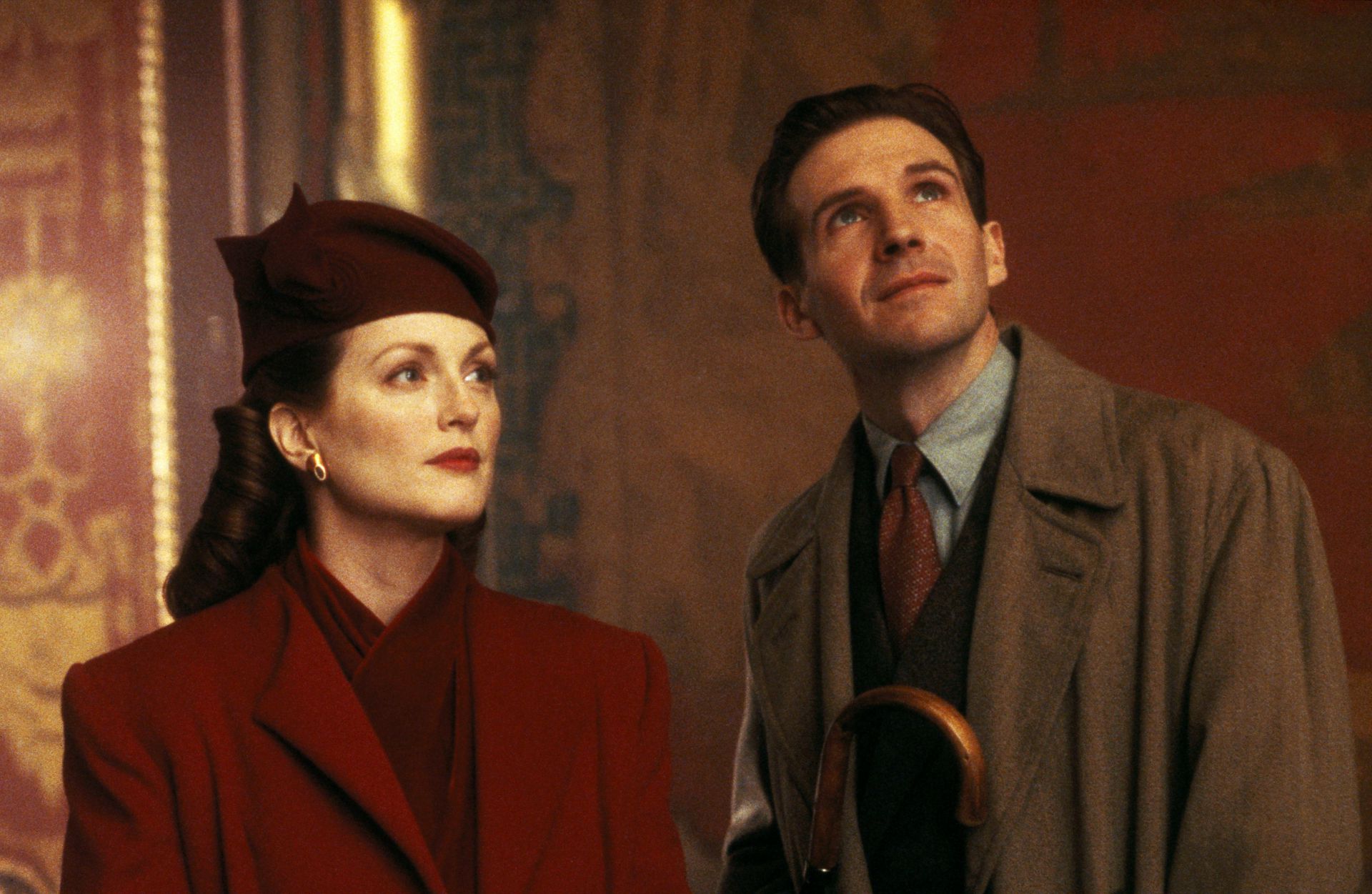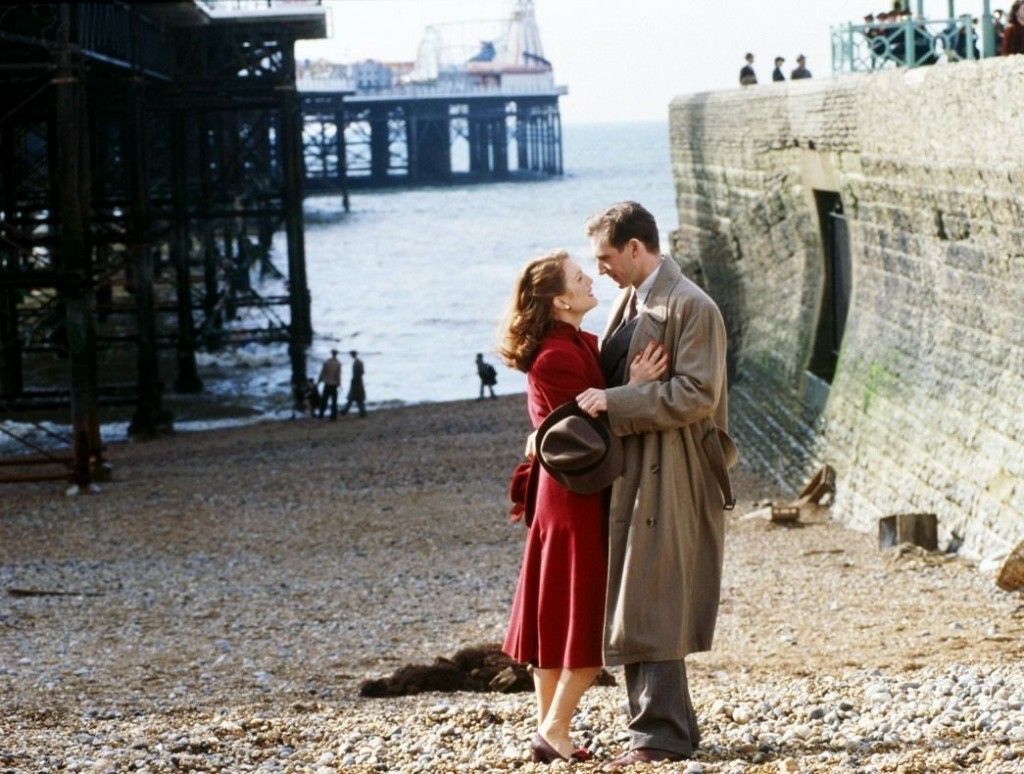There are films that don’t need to speak loudly, because their silence alone can move us to tears. The End of the Affair – Neil Jordan’s quietly haunting masterpiece – is such a film. A love story not dressed in splendor, not wrapped in fantasy, but steeped in painful truth – slow-burning, enduring, and lingering long after the credits fade.

When Love Has No Name
Set in war-torn London during World War II, amidst air raid sirens and streets cloaked in smoke, the film follows the illicit love affair between writer Maurice Bendrix (Ralph Fiennes) and Sarah Miles (Julianne Moore), a married woman. They love in shadows, in moments stolen from lives that never truly belonged to them. But their love, once fiery and defiant, abruptly collapses into silence. Two years later, a chance encounter reopens wounds Maurice thought time had sealed, sending him on a journey not only to uncover the truth but also to find himself within the ashes of a lost love.

Love – and Faith – as an Unspoken Vow
The End of the Affair is not merely a melancholic love story. It is a profound meditation on faith – not just in God, but in love, sacrifice, and the invisible threads that bind us. Sarah is not portrayed as a traitor or a weak woman. She is the embodiment of quiet sacrifice – a woman who lays her love down on the holiest of altars: the altar of faith, guilt, and divine promise.
Julianne Moore doesn’t simply act – she breathes Sarah’s torment into every glance, every sigh. Some scenes are wordless, yet heavy with emotion – her silences say more than dialogue ever could. And Ralph Fiennes, with a gaze filled with longing and resentment, draws us into the soul of a man torn apart by love – both its presence and its loss.

Wounds That Don’t Heal – and Miracles Without Names
Neil Jordan’s storytelling eschews linearity, much like memory itself. The narrative unfolds in fragments, like an old photograph blurred by rain, where truth and feeling dissolve into one another. Michael Nyman’s score is the film’s second soul – restrained, aching, and sorrowful, like a prayer whispered through clenched teeth.
What makes The End of the Affair so affecting is its refusal to offer easy answers. No one is wholly right or wrong. Love here is not celebrated as salvation, but portrayed as a crucible – where the most sacred gestures come not from claiming, but from letting go.

Closing Words: Love Never Truly Ends
“The end of the affair” – the title itself is almost ironic. For real love, even when reduced to dust, continues to exist – in every whispered memory, every sudden rainfall, every ache without a name. It does not end, but simply transforms – like a prayer not spoken to be answered, but to set the soul free.
And that is why The End of the Affair is not just a film. It is an inner experience, a beautiful wound – one that hurts, but which you never quite want to heal.

You can immerse yourself in the melancholic romance of The End of the Affair (1999) through its official trailer — where each frame evokes a haunting love song of longing, betrayal, and forgotten desire.


